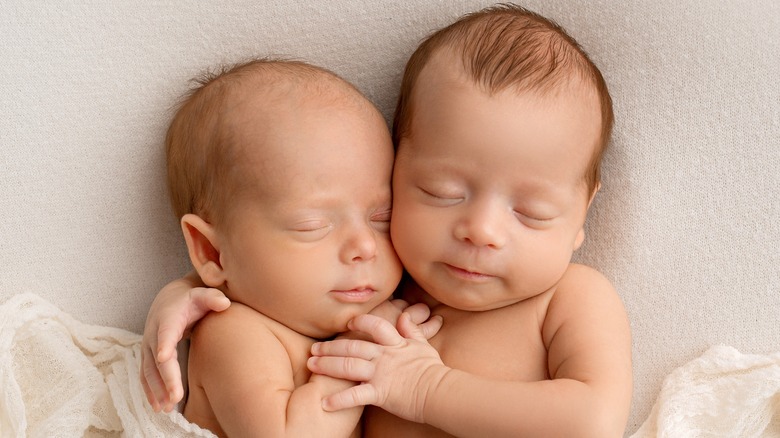What To Know About Colds In Newborns
According to MedlinePlus, the immune system produces antibodies to protect the body from foreign or harmful substances like bacteria, viruses, and toxins. According to WebMD, a typical adult can become immune after contracting a particular virus. In contrast, newborns don't manage colds like adults. An infant's immune system doesn't mature until about two to three months old, says the Cleveland Clinic. This makes newborns susceptible to viral infections, which cause colds. Seeing as it's the baby's first time, the baby's immune system might be able to fight the disease with time.
However, there's another issue of cold symptoms mimicking other diseases in newborns that may be hard to diagnose at home. Therefore, it's important not to assume that all colds disappear and your baby will stay protected after a few days. As Healthline explains, any illness in a baby under three months is enough reason to visit your family doctor.
Symptoms of a newborn cold
According to WebMD, your baby can catch a cold eight or more times in their first year, depending on their exposure to adults and older children. Usually, symptoms might include a runny or stuffed nose, per WebMD. If your baby only shows these symptoms with no other complications, the cold should naturally go away within two weeks (via Mayo Clinic).
It's crucial not to take even the slightest cold symptom for granted and see a doctor when your baby's cold persists. This is mainly because most cold symptoms in newborns are vague and can be associated with other illnesses. For instance, Healthline says some cold symptoms might mimic other illnesses like flu, croups, or pneumonia in newborns.
According to MedicalNewsToday, flu in newborns comes with typical cold symptoms, but might also include diarrhea, vomiting, or high fever. If the child develops a harsh barking cough or has difficulty breathing, it could be a symptom of whooping cough or a more severe cold called croup, per MedicalNewsToday. The source also indicates that colds in newborn babies can also escalate into pneumonia with symptoms ranging from vomiting, sweating, and flushed skin.
Prevention and treatment of newborn colds
A 2021 study published in the Pediatric Infectious Disease Journal notes that the neonatal period and early infancy are times of increased vulnerability. Therefore, parents of newborns must adopt preventive measures to keep their children safe. According to Johns Hopkins Medicine, cold often spreads through airborne droplets coughed or sneezed by the affected person. Babies inhaling the droplets is all it takes for them to develop the cold.
The Mayo Clinic emphasizes adopting preventive measures to protect babies from colds and viruses, rather than relying on over-the-counter medications, especially without a prescription. For instance, keeping the air moist and making sure they drink enough fluids are helpful actions you can take.
Medications should only be used if you suspect your child has other symptoms like fever, cough, or frequent vomiting, according to the Mayo Clinic. It also helps to be conscious of the numerous side effects of some specific drugs. For instance, WebMD advises parents not to give acetaminophen to kids under 12 weeks old unless they have spoken to a doctor.



